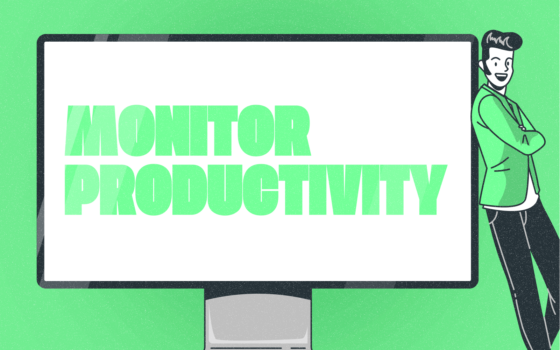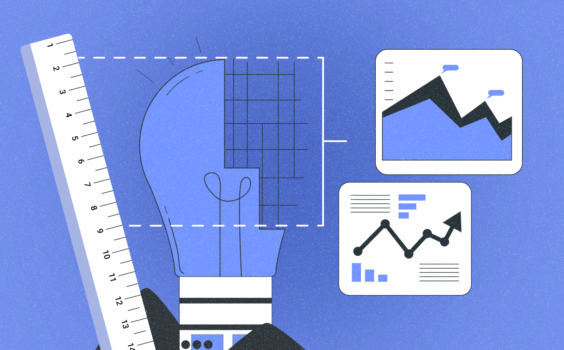Paycheck
Understanding Paychecks: The Cornerstone of Employee Compensation
In the realm of Human Resources and employee management, few things are as fundamental and impactful as the paycheck. This seemingly simple document represents the culmination of an employee's hard work, dedication, and contribution to their organization. However, beneath its surface lies a complex web of calculations, regulations, and considerations that HR professionals must navigate with precision and care.
A paycheck, also known as a payslip or pay stub, is more than just a piece of paper or digital document showing an employee's earnings. It's a comprehensive record of an individual's financial relationship with their employer, reflecting not only their base salary but also additional compensation, deductions, and contributions. Understanding the intricacies of paychecks is crucial for both employers and employees to ensure fair compensation, compliance with labor laws, and financial transparency.
The Anatomy of a Paycheck
To truly grasp the significance of paychecks in the HR landscape, it's essential to break down their components and examine each element in detail:
1. Gross Pay
At the top of most paychecks, you'll find the gross pay – the total amount an employee earns before any deductions or taxes are applied. This figure includes base salary or hourly wages, as well as any additional compensation such as overtime, bonuses, or commissions. For salaried employees, this amount is typically consistent from one pay period to the next, while hourly workers may see fluctuations based on the number of hours worked.
2. Deductions
Following the gross pay, paychecks list various deductions that reduce the employee's take-home pay. These can be broadly categorized into two types:
a) Mandatory Deductions: These are required by law and include federal and state income taxes, Social Security contributions, and Medicare payments. The amount of these deductions varies based on the employee's income level, filing status, and number of allowances claimed on their W-4 form.
b) Voluntary Deductions: These are optional deductions that an employee has agreed to, such as health insurance premiums, retirement plan contributions, life insurance premiums, or union dues. While not required by law, these deductions play a crucial role in an employee's overall compensation package and financial planning.
3. Net Pay
After all deductions have been subtracted from the gross pay, the remaining amount is the net pay or take-home pay. This is the actual amount that the employee receives, either through direct deposit or a physical check. Understanding the relationship between gross and net pay is crucial for both employers and employees in budgeting and financial planning.
4. Year-to-Date (YTD) Information
Many paychecks include year-to-date totals for earnings, taxes, and deductions. This information provides a running tally of an employee's financial status throughout the year, which can be particularly useful for tax planning and budgeting purposes.
5. Pay Period Information
Paychecks typically specify the pay period covered, including the start and end dates. This information is crucial for accurate record-keeping and ensuring that employees are paid for the correct time worked.
The Importance of Accurate Paychecks in HR
For HR professionals, ensuring the accuracy and timeliness of paychecks is a critical responsibility that impacts every aspect of the employee-employer relationship. Here's why paychecks are so important in the HR context:
1. Legal Compliance
Accurate paychecks are essential for complying with various labor laws and regulations. Failure to correctly calculate wages, overtime, or deductions can result in severe penalties and legal consequences for employers. HR departments must stay up-to-date with changing laws and regulations to ensure ongoing compliance.
2. Employee Satisfaction and Retention
Consistent, accurate paychecks are fundamental to maintaining employee trust and satisfaction. Errors in payroll can lead to financial stress for employees and damage the employer-employee relationship. By ensuring timely and accurate payment, HR can contribute significantly to employee retention and overall job satisfaction.
3. Financial Planning and Budgeting
Both employees and employers rely on accurate paycheck information for financial planning and budgeting. For employees, understanding their net pay helps in managing personal finances, while for employers, accurate payroll projections are crucial for overall business financial planning.
4. Data for HR Analytics
Paycheck data provides valuable insights for HR analytics. By analyzing trends in compensation, overtime, and deductions, HR professionals can make informed decisions about workforce planning, compensation strategies, and benefit offerings.
Challenges in Paycheck Management
While paychecks are a fundamental aspect of employment, managing them effectively can present several challenges for HR departments:
1. Regulatory Compliance
Keeping up with ever-changing tax laws, labor regulations, and reporting requirements is a constant challenge. HR professionals must ensure that payroll practices remain compliant with federal, state, and local laws, which can vary significantly across different jurisdictions.
2. Accuracy and Error Prevention
Even small errors in paycheck calculations can have significant consequences. Mistakes in tax withholding, overtime calculations, or benefit deductions can lead to underpayment or overpayment of employees, both of which can create legal and financial issues for the organization.
3. Timely Processing
Ensuring that paychecks are processed and distributed on time is crucial for maintaining employee trust and satisfaction. Delays in paycheck processing can cause significant stress for employees and potentially lead to legal issues for employers.
4. Data Security
Paychecks contain sensitive personal and financial information. HR departments must implement robust security measures to protect this data from breaches or unauthorized access, complying with data protection regulations like GDPR or CCPA where applicable.
5. Managing Different Pay Structures
Many organizations have diverse workforces with varying pay structures, including salaried employees, hourly workers, contractors, and employees with complex compensation packages. Managing these different structures within a single payroll system can be challenging.
Best Practices for Paycheck Management in HR
To address these challenges and ensure effective paycheck management, HR professionals can implement several best practices:
1. Invest in Robust Payroll Software
Utilizing modern, comprehensive payroll software can significantly streamline the process of generating paychecks. These systems can automate calculations, track changes in tax laws, and integrate with other HR systems for seamless data management.
2. Regular Audits and Reviews
Conducting regular audits of payroll processes and randomly reviewing individual paychecks can help identify and correct errors before they become systemic issues. This proactive approach can save time and resources in the long run.
3. Clear Communication with Employees
Providing clear, easily understandable paychecks and being available to answer employee questions about their compensation can help prevent misunderstandings and build trust. Consider offering paycheck literacy training to help employees better understand their compensation.
4. Stay Informed About Regulatory Changes
HR professionals should prioritize staying up-to-date with changes in labor laws, tax regulations, and reporting requirements. This might involve attending workshops, subscribing to industry publications, or working closely with legal counsel.
5. Implement Strong Data Security Measures
Protecting sensitive payroll data should be a top priority. This includes using encrypted systems, implementing strict access controls, and training employees on data security best practices.
The Future of Paychecks: Trends and Innovations
As technology continues to evolve and workforce dynamics shift, the concept of paychecks is also undergoing transformation. Here are some trends and innovations shaping the future of paychecks:
1. On-Demand Pay
Also known as earned wage access, this emerging trend allows employees to access their earned wages before the traditional payday. This flexibility can help employees manage cash flow and reduce financial stress, potentially improving job satisfaction and retention.
2. Digital Wallets and Cryptocurrency
Some companies are exploring alternative payment methods, including digital wallets and cryptocurrency. While still in its early stages, this trend could revolutionize how employees receive and manage their compensation.
3. Increased Transparency
There's a growing demand for greater transparency in compensation. This could lead to more detailed paychecks that provide clearer breakdowns of compensation components and how they're calculated.
4. Integration with Financial Wellness Programs
Paychecks of the future might be more closely integrated with financial wellness programs, providing employees with real-time insights into their financial health and offering personalized advice based on their earning and spending patterns.
5. AI and Machine Learning in Payroll
Artificial intelligence and machine learning are being increasingly applied to payroll processes, potentially improving accuracy, identifying patterns, and even predicting future payroll needs based on historical data.
Conclusion: The Enduring Importance of Paychecks in HR
In the complex landscape of Human Resources, paychecks remain a fundamental element that touches every aspect of the employee-employer relationship. From ensuring legal compliance and maintaining employee satisfaction to providing crucial data for strategic decision-making, the humble paycheck plays a pivotal role in organizational success.
As we move forward, the concept of paychecks will likely continue to evolve, embracing new technologies and adapting to changing workforce needs. However, its core purpose – to fairly and accurately compensate employees for their work – will remain constant. For HR professionals, mastering the intricacies of paycheck management is not just a technical skill, but a crucial competency that underpins their ability to support both employees and the organization as a whole.
In an era where employee experience is increasingly recognized as a key driver of organizational success, the accuracy, clarity, and timeliness of paychecks can make a significant difference. By prioritizing effective paycheck management and staying attuned to emerging trends and technologies, HR professionals can ensure that this fundamental aspect of employment continues to serve as a solid foundation for positive employee relations and organizational growth.


